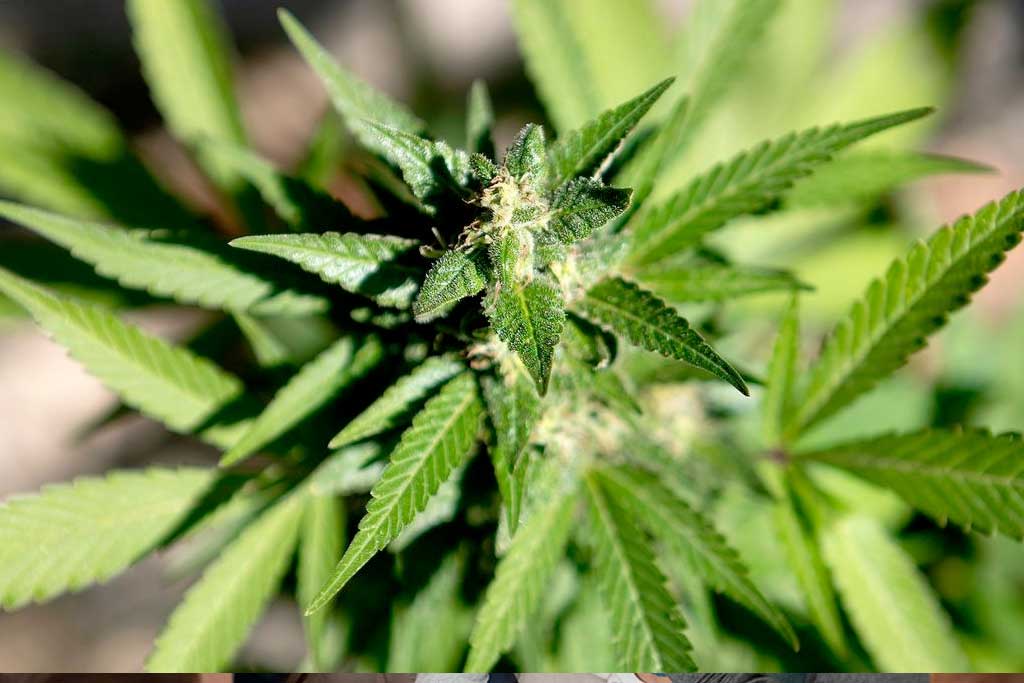Cannabis, also known as marijuana, is one of the most widely used psychoactive substances in the world. While many people use it recreationally or for medicinal purposes without developing any dependence, for some, cannabis use can lead to addiction. Understanding the causes, symptoms, and importance of treatment for cannabis addiction is crucial in addressing this growing public health concern.
What Is Cannabis Addiction?
In this article, we will explore the complexities of cannabis addiction, including its causes, the symptoms that indicate a problematic relationship with the substance, and why seeking treatment is essential for those struggling with dependence.
Cannabis addiction, or cannabis use disorder, is characterized by a person’s inability to stop using the drug despite it causing significant problems in their life. This can include issues in their personal relationships, work, or health. According to the Diagnostic and Statistical Manual of Mental Disorders (DSM-5), cannabis use disorder is diagnosed when an individual exhibits at least two of the following symptoms over a 12-month period:
1.Using more cannabis than intended: This includes both the amount used and the duration of use.
2.Persistent desire or unsuccessful attempts to cut down: The individual may express a desire to reduce their use but is unable to do so.
3.Spending a significant amount of time obtaining, using, or recovering from cannabis use: This can dominate the person’s life, leading to neglect of other responsibilities.
4.Craving, or a strong desire or urge to use cannabis: Cravings can be intense and difficult to resist.
5.Recurrent cannabis use resulting in a failure to fulfill major role obligations: This might include problems at work, school, or home.
6.Continued use despite social or interpersonal problems: The individual continues to use cannabis even though it is causing issues in their relationships.
7.Giving up important activities in favor of cannabis use: This includes reducing or abandoning activities that were once important.
8.Using cannabis in physically hazardous situations: For example, driving under the influence.
9.Continued use despite knowing it’s causing physical or psychological problems: The individual is aware of the harm but continues to use.
10.Tolerance: Needing to use more cannabis to achieve the same effect.
11.Withdrawal: Experiencing symptoms such as irritability, anxiety, or sleep disturbances when not using cannabis.
Cannabis use disorder can range from mild to severe, depending on the number of symptoms a person exhibits. The severity of the disorder often correlates with the level of impact cannabis use has on a person’s life.
Causes of Cannabis Addiction
The causes of cannabis addiction are multifaceted and can vary greatly from person to person. Understanding these causes is critical in both preventing and treating the disorder. Some of the primary factors that contribute to cannabis addiction include:
1.Biological Factors
- Genetics: There is evidence to suggest that genetics play a role in an individual’s likelihood of developing a substance use disorder, including cannabis addiction. If a person has a family history of addiction, they may be more predisposed to developing similar issues.
- Brain Chemistry: Cannabis affects the brain’s reward system by increasing the release of dopamine, a neurotransmitter associated with pleasure and reward. Over time, repeated use can alter the brain’s chemistry, making it more difficult for the individual to experience pleasure from other activities, leading to increased use and potential addiction.
- Age of First Use: Studies have shown that individuals who begin using cannabis at a younger age are more likely to develop an addiction. This is partly because the adolescent brain is still developing, particularly in areas related to decision-making and impulse control.
2.Psychological Factors
- Mental Health Disorders: Individuals with pre-existing mental health conditions, such as anxiety, depression, or PTSD, are more likely to use cannabis as a form of self-medication. This can lead to a cycle of dependence, where the person relies on cannabis to manage their symptoms, which in turn can exacerbate the underlying mental health issues.
- Stress and Coping Mechanisms: People who experience high levels of stress or who have poor coping mechanisms may turn to cannabis as a way to escape or numb their emotions. Over time, this reliance on cannabis can lead to addiction.
- Personality Traits: Certain personality traits, such as impulsivity, sensation-seeking, and a tendency towards risk-taking, have been linked to an increased likelihood of developing substance use disorders, including cannabis addiction.
3.Environmental Factors
- Peer Influence: Peer pressure and the desire to fit in with a social group can play a significant role in the initiation and continuation of cannabis use, especially among adolescents and young adults.
- Availability and Accessibility: In regions where cannabis is legal or more readily available, individuals may be more likely to experiment with and potentially become addicted to the substance.
- Cultural and Societal Attitudes: In societies where cannabis use is normalized or glamorized, individuals may be less likely to perceive the risks associated with its use, leading to more widespread and frequent consumption.
- Family Dynamics: Family environment can also influence the development of cannabis addiction. For instance, a lack of parental supervision, exposure to family members who use drugs, or a history of family conflict can increase the risk.
Symptoms of Cannabis Addiction
Recognizing the symptoms of cannabis addiction is crucial for early intervention and treatment. While the symptoms can vary in severity, they generally fall into the following categories:
1.Behavioral Symptoms
- Increased Consumption: A person addicted to cannabis may find themselves using more of the substance over time, often beyond what they initially intended.
- Neglect of Responsibilities: Addiction can lead to neglect of personal, professional, or academic responsibilities. This might include missing work or school, failing to meet deadlines, or avoiding important obligations.
- Social Withdrawal: Individuals may begin to isolate themselves from friends and family, preferring to spend time alone or with others who use cannabis.
- Loss of Interest in Activities: Hobbies and activities that were once enjoyed may be abandoned in favor of cannabis use.
- Risky Behaviors: Using cannabis in dangerous situations, such as driving under the influence, or combining it with other substances.
2.Physical Symptoms
- Tolerance: Over time, the body becomes accustomed to the presence of cannabis, requiring higher doses to achieve the same effects.
- Withdrawal: When not using cannabis, individuals may experience withdrawal symptoms such as irritability, anxiety, depression, sleep disturbances, and physical discomfort.
- Changes in Appearance: Chronic cannabis use can lead to noticeable changes in appearance, such as bloodshot eyes, changes in appetite, and poor hygiene.
3.Psychological Symptoms
- Cravings: A strong desire or urge to use cannabis can dominate a person’s thoughts, making it difficult to focus on other tasks.
- Mood Swings: Cannabis addiction can lead to unpredictable mood swings, including irritability, anger, and periods of depression or anxiety.
- Memory and Cognitive Issues: Prolonged use of cannabis has been associated with memory problems and difficulties with concentration and decision-making.
- Depression and Anxiety: Paradoxically, while some individuals use cannabis to alleviate symptoms of anxiety or depression, long-term use can exacerbate these issues, creating a vicious cycle of dependency.
The Importance of Treatment
Cannabis addiction, like any substance use disorder, is a complex and chronic condition that often requires professional intervention to overcome. The importance of seeking treatment cannot be overstated, as untreated cannabis addiction can have far-reaching consequences on an individual’s life, including:
1.Impact on Mental Health
- Worsening of Pre-Existing Conditions: As mentioned earlier, many individuals use cannabis to self-medicate for mental health conditions such as anxiety or depression. However, over time, cannabis use can exacerbate these conditions, making them more difficult to manage.
- Development of New Mental Health Issues: Chronic cannabis use has been linked to the development of new mental health problems, including paranoia, psychosis, and cognitive impairments.
2.Impact on Physical Health
- Respiratory Issues: Smoking cannabis can lead to respiratory problems, including chronic bronchitis and other lung conditions.
- Cardiovascular Problems: Cannabis use can increase heart rate and blood pressure, which may elevate the risk of heart-related issues, particularly in individuals with pre-existing conditions.
- Weakened Immune System: Regular cannabis use can impair the immune system, making the body more susceptible to infections and diseases.
3.Impact on Personal and Professional Life
- Strained Relationships: Cannabis addiction can strain relationships with family, friends, and partners, leading to conflicts, misunderstandings, and even estrangement.
- Academic and Career Setbacks: Addiction can interfere with academic and professional responsibilities, resulting in poor performance, missed opportunities, and potential job loss.
- Financial Problems: The cost of maintaining a cannabis addiction can lead to financial difficulties, including debt and financial instability.
4.Legal and Social Consequences
- Legal Issues: In regions where cannabis remains illegal, individuals may face legal consequences such as fines, arrests, and imprisonment.
- Social Stigma: Despite changing attitudes towards cannabis, there is still social stigma associated with addiction, which can lead to feelings of shame, guilt, and isolation.
Treatment Options for Cannabis Addiction
The good news is that cannabis addiction is treatable, and there are various approaches that can help individuals overcome their dependence and lead healthier, more fulfilling lives. Treatment options typically include:
1.Behavioral Therapies
- Cognitive Behavioral Therapy (CBT): CBT is one of the most effective treatments for cannabis addiction. It involves identifying and changing the thought patterns and behaviors that contribute to substance use. CBT helps individuals develop coping strategies to deal with cravings, stress, and triggers that may lead to relapse.
- Motivational Enhancement Therapy (MET): MET is a counseling approach that helps individuals build motivation to change their behavior. It is often used in the early stages of treatment to help individuals recognize the impact of their cannabis use and commit to change.
- Contingency Management: This approach involves providing tangible rewards for positive behaviors, such as remaining abstinent from cannabis. It can be an effective way to reinforce healthy habits and encourage continued recovery.
2.Support Groups
- Marijuana Anonymous (MA): Modeled after Alcoholics Anonymous (AA), Marijuana Anonymous is a 12-step program that provides support for individuals struggling with cannabis addiction. Group meetings offer a safe space to share experiences, receive encouragement, and build a network of support.
- SMART Recovery: SMART Recovery is a self-empowerment program that offers tools and techniques for overcoming addiction. It focuses on building motivation, coping with urges, managing thoughts and behaviors, and living a balanced life.
3.Medications
- Research is ongoing: To identify effective medications for treating cannabis addiction. While there are currently no FDA-approved medications specifically for cannabis use disorder, some medications, such as N-acetylcysteine (NAC) and gabapentin, are being studied for their potential to reduce cravings and withdrawal symptoms.
4.Holistic Approaches
- Mindfulness and Meditation: Incorporating mindfulness practices and meditation into treatment can help individuals manage cravings and reduce stress. These practices promote self-awareness and emotional regulation, which are essential for long-term recovery.
- Exercise and Nutrition: Physical activity and a healthy diet can support overall well-being and aid in recovery by improving mood, reducing stress, and promoting better sleep.
5.Inpatient and Outpatient Treatment Programs
- Inpatient Treatment: Inpatient or residential treatment programs provide a structured environment where individuals can focus entirely on their recovery. These programs typically offer a combination of therapy, support groups, and medical care.
- Outpatient Treatment: Outpatient programs allow individuals to receive treatment while continuing to live at home. This option provides flexibility and is often recommended for those with mild to moderate addiction.
Conclusion
Cannabis addiction is a serious condition that can have profound effects on an individual’s mental, physical, and social well-being. Understanding the causes and symptoms of cannabis addiction is crucial in recognizing when someone may need help. Moreover, seeking treatment is essential for overcoming addiction and preventing the long-term consequences associated with chronic cannabis use.
With the right support and treatment, individuals struggling with cannabis addiction can reclaim their lives, improve their health, and build a future free from dependence. Whether through behavioral therapy, support groups, or holistic approaches, there are many paths to recovery, and each step forward is a step towards a healthier, more fulfilling life.
If you or someone you know is struggling with cannabis addiction, it’s important to reach out for help. Treatment is available, and recovery is possible.


